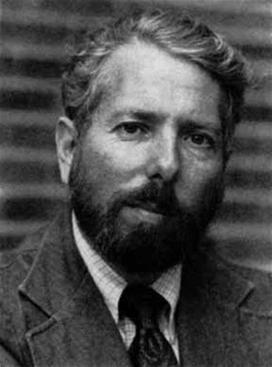Stanley Milgram
Stanley Milgram | |
|---|---|
| Born | August 15, 1933 New York City, New York, U.S. |
| Died | December 20, 1984 (aged 51) New York City, New York, U.S. |
| Nationality | American |
| Alma mater | Queens College, Harvard University |
| Known for | Milgram experiment, Small-world experiment |
| Scientific career | |
| Fields | Social psychology |
| Institutions | Yale University, Harvard University, City University of New York |
| Doctoral advisor | Gordon Allport |
Stanley Milgram (August 15, 1933 – December 20, 1984) was an American social psychologist, best known for his controversial Milgram experiment on obedience conducted in the 1960s during his professorship at Yale University. He is also known for the small-world experiment, which led to the concept of "six degrees of separation."
Early life and education[edit | edit source]
Milgram was born in New York City to a family of Jewish immigrants. He attended James Monroe High School and later enrolled at Queens College, where he earned a B.A. in Political Science in 1954. He then pursued graduate studies at Harvard University, where he studied under Gordon Allport and received his Ph.D. in Social psychology in 1960.
Career[edit | edit source]
After completing his doctorate, Milgram took a position as an assistant professor at Yale University, where he conducted his famous Milgram experiment on obedience to authority figures. The experiment revealed the extent to which individuals would follow orders from an authority figure, even when such orders involved harming another person.
In 1963, Milgram joined the faculty at Harvard University, where he continued his research on social networks and conducted the small-world experiment. This experiment demonstrated that any two individuals in the United States could be connected through a short chain of acquaintances, leading to the popularization of the phrase "six degrees of separation."
Milgram later moved to the City University of New York, where he continued his research and teaching until his death in 1984.
Milgram experiment[edit | edit source]
The Milgram experiment was a series of social psychology experiments conducted by Milgram to measure the willingness of participants to obey an authority figure who instructed them to perform acts conflicting with their personal conscience. The results showed that a high proportion of participants were willing to obey instructions to administer what they believed were painful and potentially harmful electric shocks to another person.
Small-world experiment[edit | edit source]
The small-world experiment was designed to investigate the average path length for social networks of people in the United States. The experiment involved sending a package through a chain of acquaintances to a target individual, demonstrating that people are connected by a surprisingly short number of steps, which Milgram termed the "small-world phenomenon."
Legacy[edit | edit source]
Milgram's work has had a profound impact on the field of social psychology, influencing research on obedience, conformity, and social networks. His experiments have been widely discussed and critiqued, raising important ethical questions about the treatment of participants in psychological research.
Personal life[edit | edit source]
Milgram was married to Sasha Milgram, and they had two children. He passed away from a heart attack on December 20, 1984, in New York City.
See also[edit | edit source]
References[edit | edit source]
External links[edit | edit source]
Navigation: Wellness - Encyclopedia - Health topics - Disease Index - Drugs - World Directory - Gray's Anatomy - Keto diet - Recipes
Search WikiMD
Ad.Tired of being Overweight? Try W8MD's physician weight loss program.
Semaglutide (Ozempic / Wegovy and Tirzepatide (Mounjaro / Zepbound) available.
Advertise on WikiMD
WikiMD is not a substitute for professional medical advice. See full disclaimer.
Credits:Most images are courtesy of Wikimedia commons, and templates Wikipedia, licensed under CC BY SA or similar.- Use mdy dates from October 2023
- No local image but image on Wikidata
- 1933 births
- 1984 deaths
- American social psychologists
- Harvard University alumni
- Harvard University faculty
- Queens College, City University of New York alumni
- Yale University faculty
- City University of New York faculty
- Jewish American scientists
- People from New York City
- 20th-century American psychologists
- Social psychologists
- Experimental psychologists
- Psychology experiments
- Psychological theories
- Research ethics
- Medicine stubs
- Encyclopedia
Contributors: Prab R. Tumpati, MD


